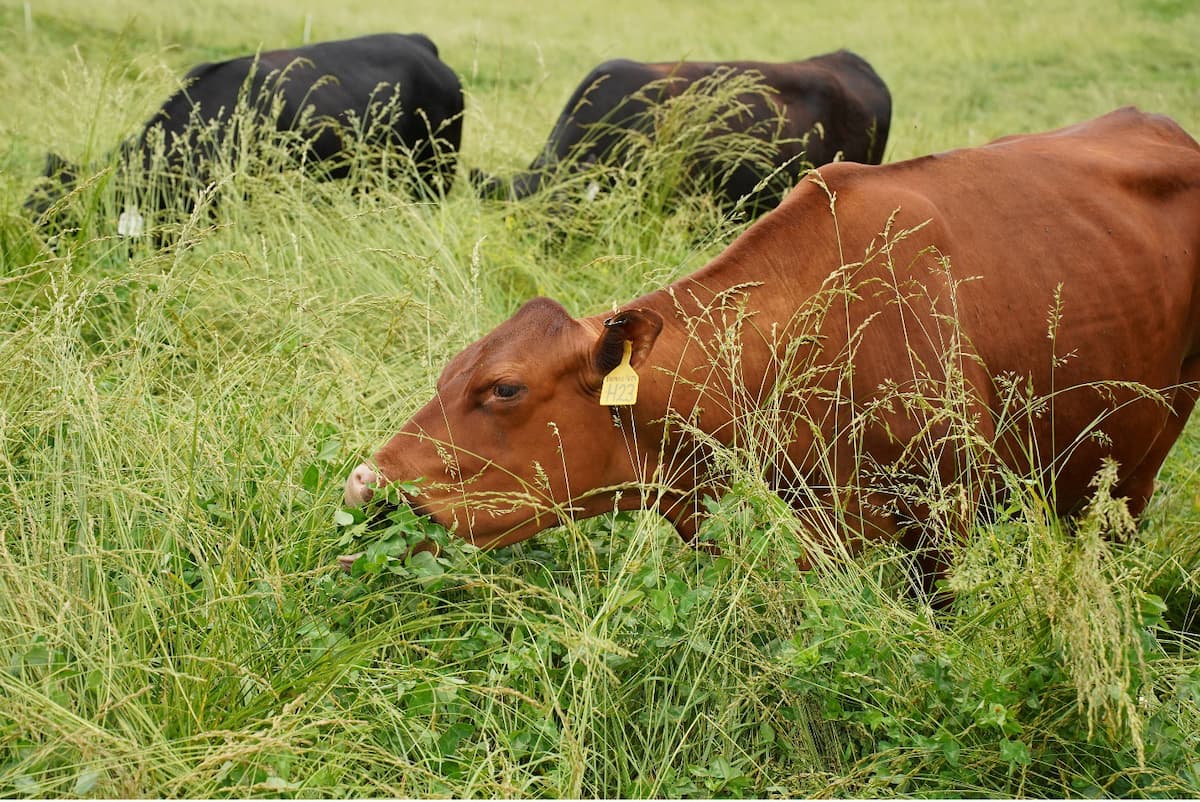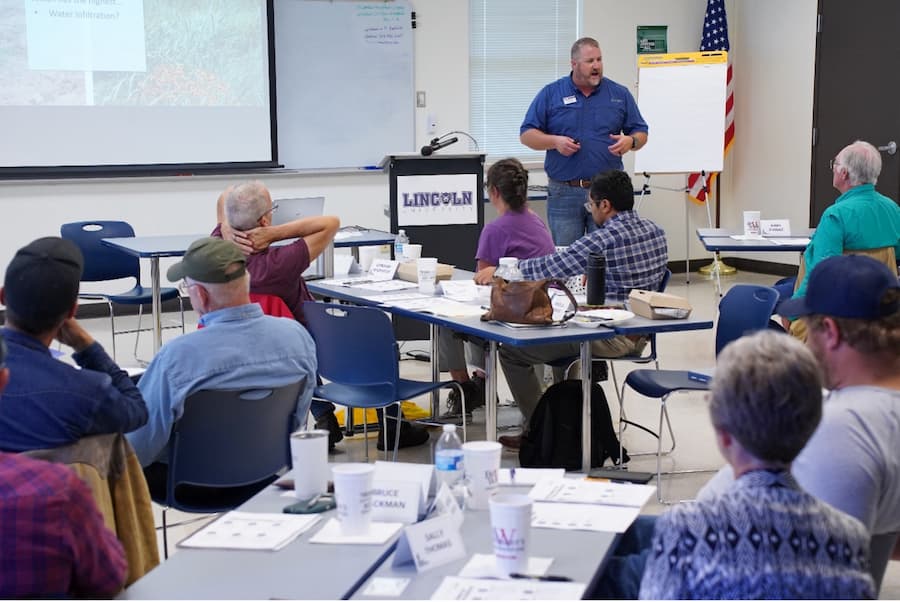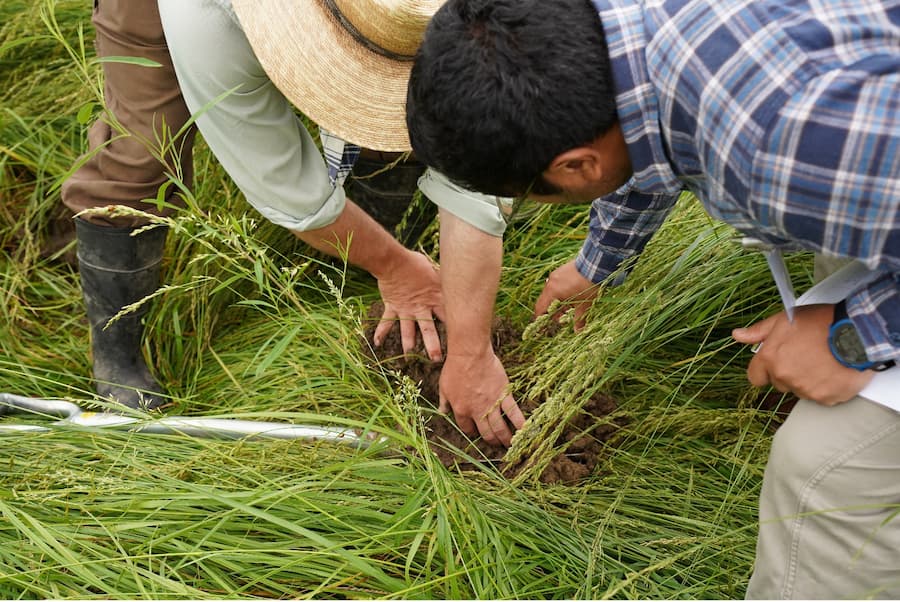The Noble Institute Comes to Carver Farm: Teaching the Benefits of Regenerative Grazing
Office of Communications and Marketing
Young Hall
820 Chestnut Street
Jefferson City, MO 65101
 Cattle graze a field to demonstrate the impact of grazing on pastures.
Cattle graze a field to demonstrate the impact of grazing on pastures.
Noble Institute educators Devlon Ford and Travis Jones taught attendees how to establish implementation strategies for regenerative grazing and water distribution at a recent workshop. The event, held at Carver Farm June 4-6, had a group of approximately 30 individuals who mapped their land and gained hands-on experience with a small herd of cattle.
Regenerative grazing focuses on moving cattle between pastures to mimic natural grazing patterns. Benefits of implementing this type of grazing include improved soil, air and water quality, healthier livestock and an increase in the profitability of the farm.
Water distribution is an issue many farmers face — they don’t know how to easily provide adequate water for their crops and livestock. Attendees learned how different grasses can affect water retention in soil and the benefits that man-made ponds have on soil health.
 Travis Jones discusses the importance of regenerative grazing with workshop attendees.
Travis Jones discusses the importance of regenerative grazing with workshop attendees.
Angelica Benoit, along with her father, Mike, and sister, Patience, attended the workshop to learn some tips for the homestead they are planning.
“Our goal is to become more sustainable,” Benoit said. “I loved how [they mentioned] in talking about rotational grazing, water does become an issue. Because if you're moving cows constantly, how do you have a water source in every single pasture? So, that's a cool idea to dig out your own ponds.”
Each person at the event had the opportunity to map out their own land setup. The workshop leaders helped everyone locate their properties on an online map and printed a copy for them to look at. Then, individuals mapped out the locations of their pastures or other landmarks so they could better see how implementation of regenerative grazing techniques might work for them.
The group went out to one of the farm’s pastures to demonstrate grazing strategies outlined in the course. Here, group leaders released a small herd of cattle into a pasture to graze for an hour. After the hour of grazing, the group went back out to see how the pasture grasses had been grazed and which, if any, plants the cattle favored.

One attendee said he chose to attend this workshop because he wanted to learn different ways to improve the land he has. He signed up because of his interest in improving the health of his soil and hoping to experiment with ways to do so.
Lincoln University’s College of Agriculture, Environmental and Human Sciences (CAEHS) frequently partners with the Noble Research Institute to provide farmers with valuable information for improving the way they run their operations. There are currently four courses offered teaching various ways for farmers to make improvements on their farms.
For more information on regenerative grazing and upcoming Noble Research Institute courses at Lincoln University, contact Chris Boeckmann at boeckmannc@lincolnu.edu or (573) 635-2063.
